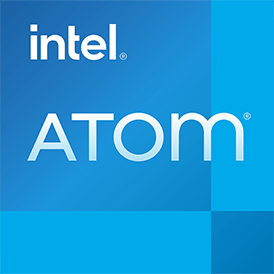
Porównaj Intel Atom Z3736F VS Intel Celeron J1750. Which processor delivers superior performance?
In this detailed comparison, we evaluate the specifications and benchmarks of both processors to determine the best choice for your needs. We analyze their core counts, maximum frequencies, and power consumption.
Intel Atom Z3736F boasts a maximum frequency of 1.33 GHz GHz. 4 cores that enhance multitasking capabilities.With a power consumption of 4 W W, it ensures efficient performance.Wydany w Q2/2014, it incorporates the latest technology for optimal efficiency.
Intel Celeron J1750 features a maximum frequency of 2.41 GHz GHz. 2 cores designed for high-performance tasks.Its power consumption is 10 W W, providing a balance of power and efficiency.Launched in Q3/2013, it is built to handle demanding applications.
 Powody do rozważenia
Powody do rozważenia Miejsce w rankingu ogólnym
(w oparciu o kilka benchmarków)
Większa liczba rdzeni
2 Więcej rdzeni
Wydajność na wat
mniej ciepła wytwarzanego przez procesor, W.
Wspólne stanowiska Intel Atom Z3736F Procesor w popularnych benchmarkach, dla porównania z innymi modelami.
 Powody do rozważenia
Powody do rozważenia Miejsce w rankingu ogólnym
(w oparciu o kilka benchmarków)
Wyższa prędkość zegara
Wokół 45% lepsza prędkość zegara
Wspólne stanowiska Intel Celeron J1750 Procesor w popularnych benchmarkach, dla porównania z innymi modelami.
 Intel Atom Z3736F
Intel Atom Z3736F

Comprehensive background on the processors being compared, detailing their series, generation, and targeted market segment.
Essential parameters including the number of cores, threads, base and turbo frequencies, and cache size. These metrics provide insight into the processor’s speed—higher values generally indicate better performance.
The integrated graphics (iGPU) do not influence the CPU performance significantly; they serve as a substitute for a dedicated graphics card in the absence of one or are utilized in mobile devices.
This section details the built-in codecs used for encoding and decoding media content, which significantly enhance processing speed and efficiency.
Overview of the types and quantities of RAM supported by Intel Celeron J1750 oraz Intel Atom Z3736F. The supported memory frequencies may vary depending on the motherboard configuration.
Analyze the TDP (Thermal Design Power) requirements of Intel Atom Z3736F oraz Intel Celeron J1750 to make an informed decision on the appropriate cooling system. Remember that TDP refers to thermal watts, not electrical watts.
Information on architecture, interfaces, and additional instructions supported by Intel Atom Z3736F oraz Intel Celeron J1750, including virtual machine technologies and fabrication processes.
By analyzing the results from various benchmarks, you can gain a clearer understanding of the performance differences between Intel Atom Z3736F oraz Intel Celeron J1750.
Compare the synthetic benchmark scores and make an informed decision on the best processor for your needs!